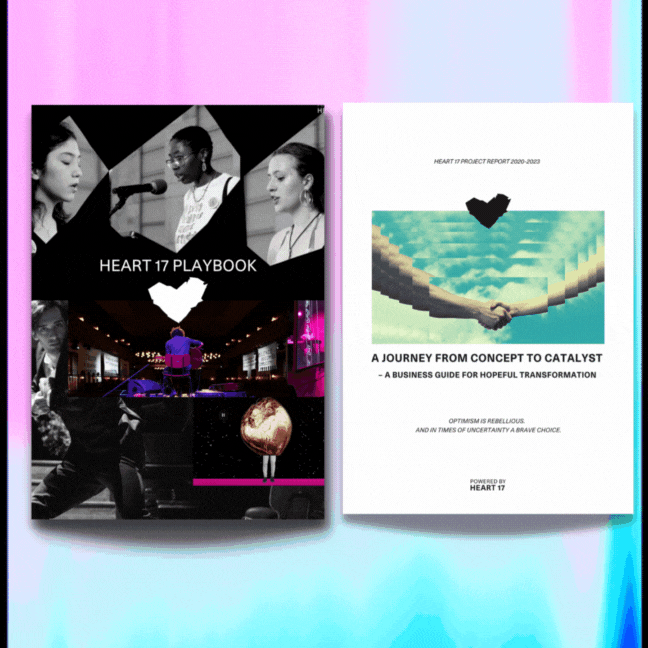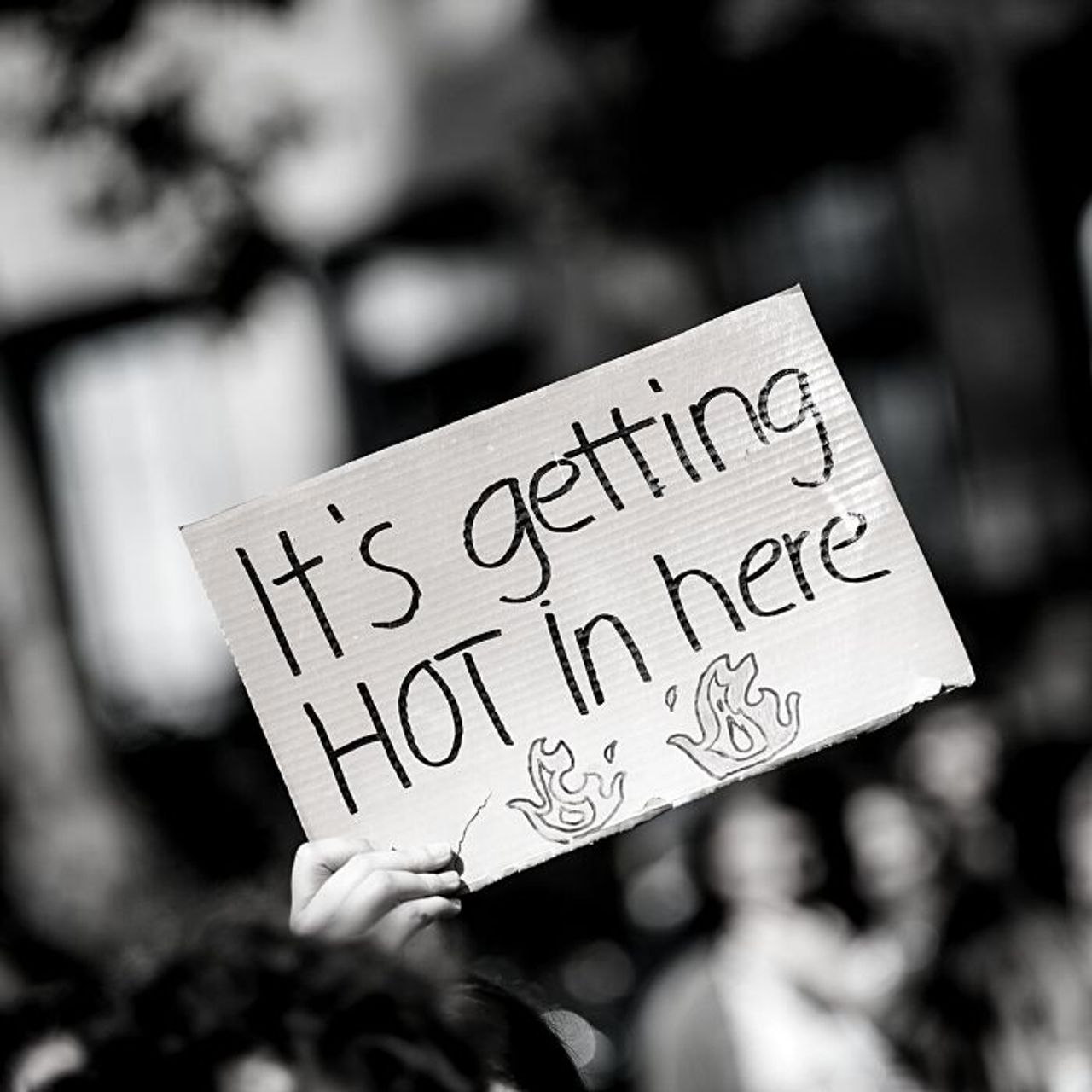Music is powerful. It influences our emotions and inspires action. Working with Epidemic Sound’s roster of global, up-and-coming musicians, HEART 17 turned the Global Goals, a blueprint for targeting inequality, raising living standards and improving sustainability worldwide, into music to spread awareness around the 17 Global Goals (SDGs).
Ninteen Epidemic Sound artists have produced original tracks for each of the 17 Global Goals. Each artist has chosen a goal close to their heart.
Goal 1: No poverty
Eradicating poverty in all its forms remains one of the greatest challenges facing humanity. While the number of people living in extreme poverty dropped by more than half between 1990 and 2015, too many are still struggling for the most basic human needs.
Goal 2: Zero hunger
The number of undernourished people has dropped by almost half in the past two decades because of rapid economic growth and increased agricultural productivity. Many developing countries that used to suffer from famine and hunger can now meet their nutritional needs. Unfortunately, extreme hunger and malnutrition remain a huge barrier to development in many countries.
Goal 3: Good health and well-being
We have made great progress against several leading causes of death and disease. Life expectancy has increased dramatically; infant and maternal mortality rates have declined, we’ve turned the tide on HIV and malaria deaths have halved. But progress has been uneven, both between and within countries. There’s a 31-year gap between the countries with the shortest and longest life expectancies. And while some countries have made impressive gains, national averages hide that many are being left behind.
Goal 4: Quality education
Since 2000, there has been enormous progress in achieving the target of universal primary education. The total enrolment rate in developing regions reached 91 percent in 2015, and the worldwide number of children out of school has dropped by almost half. There has also been a dramatic increase in literacy rates, and many more girls are in school than ever before. Achieving inclusive and quality education for all reaffirms the belief that education is one of the most powerful and proven vehicles for sustainable development.
Goal 5: Gender equality
Ending all discrimination against women and girls is not only a basic human right, it’s crucial for sustainable future; it’s proven that empowering women and girls helps economic growth and development.
Goal 6: Clean water and sanitation
Water scarcity affects more than 40 percent of people, an alarming figure that is projected to rise as temperatures do. More and more countries are experiencing water stress, and increasing drought and desertification is already worsening these trends. By 2050, it is projected that at least one in four people will suffer recurring water shortages.
Goal 7: Affordable and clean energy
As the population continues to grow, so will the demand for cheap energy, and an economy reliant on fossil fuels is creating drastic changes to our climate. Investing in solar, wind and thermal power, improving energy productivity, and ensuring energy for all is vital if we are to achieve SDG 7 by 2030.
Goal 8: Decent work and economic growth
Over the past 25 years the number of workers living in extreme poverty has declined dramatically. However, as the global economy continues to recover we are seeing slower growth, widening inequalities, and not enough jobs to keep up with a growing labour force. The 8th global goal promote sustained economic growth, higher levels of productivity and technological innovation. Encouraging entrepreneurship and job creation are key to this, as are effective measures to eradicate forced labour, slavery and human trafficking.
Goal 9: Industry, innovation and infrastructure
Investment in infrastructure and innovation are crucial drivers of economic growth and development. With over half the world population now living in cities, mass transport and renewable energy are becoming ever more important, as are the growth of new industries and information and communication technologies.
Goal 10: Reduced inequalities
Income inequality is on the rise—the richest 10 percent have up to 40 percent of global income whereas the poorest 10 percent earn only between 2 to 7 percent. These widening disparities require sound policies to empower lower income earners, and promote economic inclusion of all regardless of sex, race or ethnicity.
Goal 11: Sustainable cities and communities
More than half of us live in cities. By 2050, two-thirds of all humanity—6.5 billion people—will be urban. Sustainable development cannot be achieved without significantly transforming the way we build and manage our urban spaces.
Goal 12: Responsible consumption and production
Achieving economic growth and sustainable development requires that we urgently reduce our ecological footprint by changing the way we produce and consume goods and resources. Agriculture is the biggest user of water worldwide, and irrigation now claims close to 70 percent of all freshwater for human use.
Goal 13: Climate action
There is no country that is not experiencing the drastic effects of climate change. Greenhouse gas emissions are more than 50 percent higher than in 1990. Global warming is causing long-lasting changes to our climate system, which threatens irreversible consequences if we do not act.
Goal 14: Life Below Water
The world’s oceans – their temperature, chemistry, currents and life – drive global systems that make the Earth habitable for humankind. How we manage this vital resource is essential for humanity as a whole, and to counterbalance the effects of climate change.
Goal 15: Life on land
Protect, restore and promote sustainable use of terrestrial ecosystems, sustainably manage forests, combat desertification, and halt and reverse land degradation and halt biodiversity loss. Human life depends on the earth as much as the ocean for our sustenance and livelihoods.
Goal 16: Peace, justice and strong institutions
We cannot hope for sustainable development without peace, stability, human rights and effective governance, based on the rule of law. Yet our world is increasingly divided. Some regions enjoy peace, security and prosperity, while others fall into seemingly endless cycles of conflict and violence. This is not inevitable and must be addressed.
Goal 17: Partnerships for the goals
The SDGs can only be realized with strong global partnerships and cooperation. The world is more interconnected than ever. Improving access to technology and knowledge is an important way to share ideas and foster innovation. Coordinating policies to help developing countries manage their debt, as well as promoting investment for the least developed, is vital for sustainable growth and development.
Spread awareness and support creativity
Use the songs to create inspiring content and campaigns. Help us raise awareness of the Global Goals and celebrate the UN’s World Creativity and Innovation Day on April 21.
Between April 2023 to April 2024, all the Epidemic Sound-owned revenue generated from the use of these tracks will be donated to Turning Tables, a non-profit association that creates space for young people to express hope, frustration, and dreams through photography, film, and music.
Read more about the Global Goals (SDGs) on undp.org
Read more about the project at Epidemic Sound












